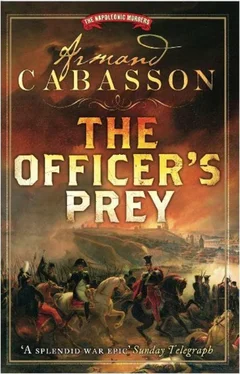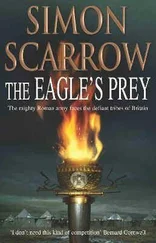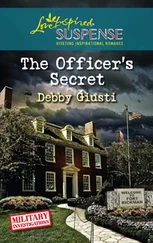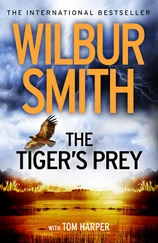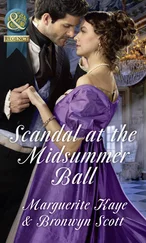Armand Cabasson - The Officer's Prey
Здесь есть возможность читать онлайн «Armand Cabasson - The Officer's Prey» весь текст электронной книги совершенно бесплатно (целиком полную версию без сокращений). В некоторых случаях можно слушать аудио, скачать через торрент в формате fb2 и присутствует краткое содержание. Год выпуска: 2013, ISBN: 2013, Издательство: Gallic Books, Жанр: Старинная литература, на английском языке. Описание произведения, (предисловие) а так же отзывы посетителей доступны на портале библиотеки ЛибКат.
- Название:The Officer's Prey
- Автор:
- Издательство:Gallic Books
- Жанр:
- Год:2013
- ISBN:9781906040826
- Рейтинг книги:3 / 5. Голосов: 1
-
Избранное:Добавить в избранное
- Отзывы:
-
Ваша оценка:
- 60
- 1
- 2
- 3
- 4
- 5
The Officer's Prey: краткое содержание, описание и аннотация
Предлагаем к чтению аннотацию, описание, краткое содержание или предисловие (зависит от того, что написал сам автор книги «The Officer's Prey»). Если вы не нашли необходимую информацию о книге — напишите в комментариях, мы постараемся отыскать её.
The Officer's Prey — читать онлайн бесплатно полную книгу (весь текст) целиком
Ниже представлен текст книги, разбитый по страницам. Система сохранения места последней прочитанной страницы, позволяет с удобством читать онлайн бесплатно книгу «The Officer's Prey», без необходимости каждый раз заново искать на чём Вы остановились. Поставьте закладку, и сможете в любой момент перейти на страницу, на которой закончили чтение.
Интервал:
Закладка:
Margont frequently thought about his childhood or certain moments in his life. He recalled in particular the birth of his friendship with Piquebois because that day he had almost died. Piquebois, then at the height of his hussar period, had noticed him reading while he was slashing away at pumpkins on stakes topped with Austrian helmets. Piquebois, sabre in hand and probably running out of pumpkins, had called him a ‘book-devouring little squirt’. He would have been only too happy to see the ‘infantry librarian’ unsheathe his sword. But Margont had replied that he only used his weapon for opening letters, not for slicing off the heads of French hussars. Piquebois had burst out laughing before dragging Margont off for a drinking session that it would have been unwise to refuse. However, these memories were rather a bad omen. When you reach the end of a long journey or a project that took a long time to complete, you often think back to its beginning. Margont had the impression that his mind was going back over his life one last time, before gently fading away …
A little further on, Lefine fell. Margont bent his knees to crouch down, which caused him intense pain, as if the bulging muscles in his thighs had ripped his frozen skin. He wanted to remove his friend’s knapsack but was surprised by its weight. He opened it and discovered silver ingots, jewellery and gold plate. He started to empty it. Lefine groaned, stuck out his hand and with considerable difficulty picked up a gold snuffbox that he stuffed into one of his pockets. But Margont was throwing away far more than he could retrieve.
‘I’ve left you your jewels. Otherwise you’d probably have stayed here,’ Margont said in a whisper as he was out of breath.
Lefine was getting to his feet with the aid of Saber and Fanselin when loud cries of ‘Huzza! Huzza!’ rang out. In an instant, men on horseback swept down on the column from all sides at once. Most of the attackers were Cossack irregulars, Bashkirs and Kalmucks. Everything about them – their Mongol features, their strangely shaped red hats, the fact that some of them were armed with bows – caused fear and panic. Accompanying them were hussars, who yelled as they set upon the French with their sabres.
There was total confusion. Infantrymen were fleeing, putting their arms in the air or trying to defend themselves with anything that came to hand. Hands stiffened by the cold managed to wield muskets and fire at the horsemen or, more often, at the horses. The Russians, better fed, less tired, drunk with victory but also just plain drunk, were indulging in a massacre. The hussars galloped along the column laughing, leaving a bloody trail behind them. Fanselin wielded his lance. He had jammed the end of it against a large stone. A Bashkir charged at him, and the lancer, bending down at the last minute to avoid the point, impaled the Russian. He immediately clung on to the horse’s mane but the animal did not interrupt its headlong charge, carrying the Frenchman away with it. Fanselin eventually rolled on to the ground. He picked himself up, pistol in hand, ready to grab hold of another mount. The Bashkirs who had witnessed the scene had no desire to take on such a madman.
Margont felt an uncontrollable frenzy come over him. He shot dead a Bashkir with his pistol and wounded another with his other weapon. This second assailant was bleeding from the shoulder. His weakened hand had let go of the reins and his horse was galloping round and round a cart. Margont wanted to finish the Russian off but his sword failed to pierce the thick cloak. So he seized the Russian and threw him to the ground. He sat astride him and brandished his knife. He wanted to gouge his opponent’s eyes out to make him finally understand what suffering could be. He revelled in the Bashkir’s fear. The man had a round face with prominent cheekbones. His head was shaven except at the back, where he had a long, dangling plait. He had a very thin moustache, the ends of which drooped down to his chin. His eyes were so narrow and slanting that his pupils were barely visible. Despite all these differences, Margont saw his own reflection in this face. The Bashkir had been hit; for him the war was over. Margont put away his knife, took the bag that the Cossack was wearing on his belt and moved away. At once he flung himself on his stomach because a Frenchman was taking aim at him, mistaking him for a partisan.
‘French! 84th!’ he yelled.
Realising his mistake, the marksman shot a Kalmuck for good measure.
The assailants left as suddenly as they had arrived. As they rode off, they thrust their lances into the backs of bodies, occasionally striking an infantryman who was pretending to be dead. A scream of pain told them when they had been ‘lucky’.
Fanselin was engaged in a lance duel with a regular Cossack officer. The Russian was swiftly whirling his lance around to parry an attack. When he had deflected his opponent’s weapon sufficiently, he stopped flourishing his own and thrust its point towards the Frenchman’s chest. With surprising agility, Fanselin leapt to the side before counterattacking. Changing tactics, Fanselin pretended to attack with the point of his lance only to suddenly turn it in an arc and strike his opponent with the other end. The Cossack received a violent blow to the chin and fell from his horse. A chorus of explosions stopped the fleeing horse dead in its tracks. They were not going to let such a heap of meat get away. Fanselin kept the prisoner at bay with his lance.
‘Long live our Red Cossack!’ exclaimed Margont weakly.
More shouts greeted the ‘Red Cossack’ and Fanselin smiled at the compliment. The Cossack exclaimed ‘Huzza!’ and to general amazement hurled himself at the lance to impale himself. Fanselin immediately withdrew the point but it was too late.
Everyone rushed for the carcasses of the horses to eat their fill, gnawing on the bones like dogs, without even taking the time to cook them because the Cossacks were still prowling around.
Margont opened the Bashkir’s bag. Inside it he found black bread mixed with bits of straw. The loaf had been baked any old how: it had been placed in an overheated oven and the outside was burnt and the middle still doughy. Margont bit right into it. He couldn’t believe that he had almost tortured this Bashkir. Was suffering making him mad? He needed to build up some protection against insanity for himself. Instead of repeating that he was marching to the Duchy of Warsaw – which was still so far away – his thoughts turned to Colonel Pirgnon. Don’t let him out of your sight. Keep your monster on a leash, he thought. He said to himself that he didn’t have the right to let himself die or to lose his sanity, and that managed to put some life back into those aching blocks of wood that were his legs. The march resumed. Yet again. *
Colonel Pirgnon was cursing the fog that was hiding the full scale of the disaster from him. In his opinion it was all up for the Emperor. The Russian armies were going to cut off the retreat and that would sound the death knell. The irony of the situation amused him, because while everything around him was dying, he himself felt reborn. His future at last seemed crystal clear. He went up to the soldiers in his escort who, blue with cold, were shivering near a fire. The frozen branches were bad for burning as they produced a sort of smoke but no fire or heat. However, the colonel felt a surge of contentment well up inside him.
On 25 November, the Grande Armée found itself opposite the Berezina. It was here that the Russians had planned to crush it. The Berezina, a huge tributary of the Dnieper, had not in fact frozen over. A hundred and fifty paces wide, almost ten feet deep and bordered by marshes and forest, it cut off the retreat. By now the Emperor only had at his disposal twelve thousand soldiers, half of whom made up the Guard. He could also count on reinforcements of twenty thousand men led by Victor, Oudinot and Dombrovski. In addition to these troops there were forty thousand civilians and stragglers, for the most part unarmed. The Russians, who numbered one hundred and twenty thousand men divided into three armies, had also been weakened by the fighting and the winter. Admiral Chichagov held the west bank of the Berezina and was supposed to prevent the French from getting through. To the north was Wittgenstein and to the east and south, Kutuzov. But the latter, still more than sixty miles away from the French, was not urging his army on. It was Napoleon’s unprecedented prestige that had led the Russian generalissimo to commit this blunder, much to the consternation of his general staff. Napoleon had won so many victories that Kutuzov greatly underestimated the disorganised and weakened state of the Grande Armée. So, once more, he sought to avoid direct confrontation and to let the climate and the hardships do their work.
Читать дальшеИнтервал:
Закладка:
Похожие книги на «The Officer's Prey»
Представляем Вашему вниманию похожие книги на «The Officer's Prey» списком для выбора. Мы отобрали схожую по названию и смыслу литературу в надежде предоставить читателям больше вариантов отыскать новые, интересные, ещё непрочитанные произведения.
Обсуждение, отзывы о книге «The Officer's Prey» и просто собственные мнения читателей. Оставьте ваши комментарии, напишите, что Вы думаете о произведении, его смысле или главных героях. Укажите что конкретно понравилось, а что нет, и почему Вы так считаете.
